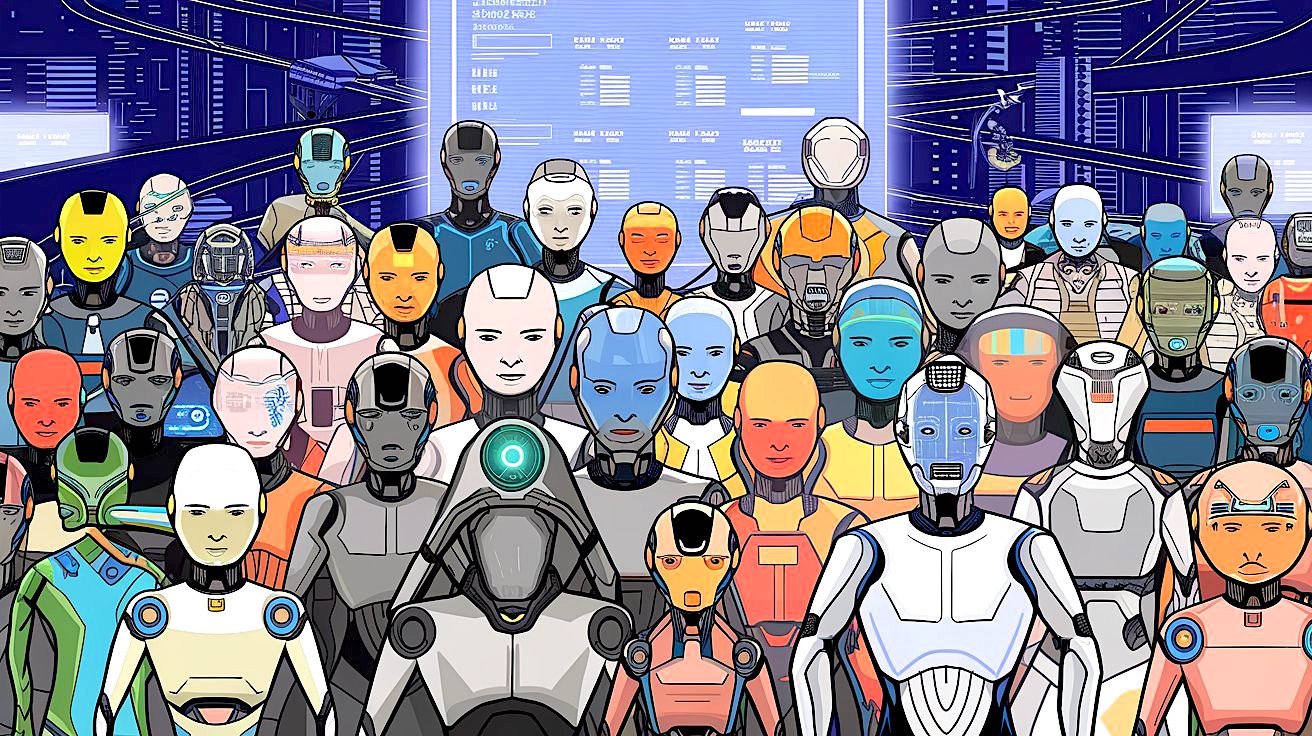This is the story of a little piece of technology that you have been taking for granted. Almost every time you’ve gone to the store, this little guy has been fighting for you. It’s called the price tag. And over the past decade, companies have been on a secret mission to kill it without you noticing. The scary part is they’re actually getting away with it. And that’s because a lot of us who grew up with the price tag just never realized how radical it really was. Back in the 1800s, shopping was like a game. The clerk would charge you based on what they thought was important at the time: the length of the line, the time of day or how rich you looked. If you didn’t like the price he named, you’d haggle. -Fifteen. -Seventeen. My last word. I won’t take a penny less or strike me dead. -Sixteen. -Done. The Quakers had a problem with this. People were paying different prices for the same product, and that was unfair. So they started posting prices. Other stores followed suit, and this one-price system completely changed how Americans shopped. You could more easily compare prices between stores, and that pressured stores to lower prices. In the 1930s, Stan Avery invented what he called Come Clean adhesives. The name didn’t stick, but the product sure did. Soon enough, price tags were everywhere. Each of these stickers was a little handshake. It represented an agreement: one price for every customer. But now that agreement is breaking. With A.I. and automated surveillance, corporations are turning shopping back into a game. Except this time, all of us are going to get played. “Tonight: a hidden threat to your wallet. It’s a practice called dynamic pricing.” The price of your groceries may soon change right in front of your eyes. You’ve probably heard about dynamic pricing. It’s the reason Uber prices keep changing and flight costs jump up and down. It feels like we’re constantly being taken advantage of. It can send concert ticket prices through the roof. Companies are using algorithms to instantly change prices based on demand, competition and what they know about their customers. These algorithms are in a race to identify the highest price at which a sale can still be made, and customers don’t exactly love it. “Whoever invented dynamic pricing is going to hell.” “Dynamic pricing [EXPLETIVE].” “OK, let’s chat about the ticket prices, shall we.” Oh, my Lord. Let’s be clear. Price changes are the language of capitalism. It’s how we talk to each other about supply and demand. In some cases, having algorithms make these changes can benefit both customers and companies. But as dynamic pricing proliferates, companies are also using this technology to take advantage of customers. And they’re doing this in three ways. The illegal way, the legal way and the definitely should be illegal way. Let’s start by breaking the law. Now, back in the price tag days, collusion took a lot of effort. The bosses had to sit around a table with their competitors and smoke a cigarette and agree to raise prices without getting caught. But today, with pricing algorithms, collusion is just a few clicks away. When a bunch of individual companies sign up for the same algorithm, they can effectively collude without ever talking to each other. Just look at what happened with RealPage. “Software firm RealPage is accused of scheming with landlords to keep rents high.” Landlords subscribing to the service would input data about their apartments, including location, square footage and amenities. The algorithm would tell them how much to charge for rent. But the algorithm wasn’t designed to determine the market price. It was designed to maximize landlord profits. So it did all the things that would have been done in a back- door deal with an ease that old-fashioned colluders could only dream of. It advised landlords to price their apartments above the market rate, and if demand was falling, it told landlords to leave apartments empty rather than reducing rents. The company boasted that their algorithm raised revenue by 3 to 7 percent. This scheme impacted over three million apartments across the country, and as a result, Americans were overcharged by billions of dollars. Now, the good news is that this model is likely illegal. In fact, the Justice Department sued RealPage. That’s classic price fixing. And earlier this week, RealPage settled the case, agreeing to change its business practices. But even if this model of sharing the same algorithm was illegal, this model where each company uses its own algorithm is legal. New research suggests that even when companies are using different algorithms, prices still go up. Let’s say you run a gas station and your biggest rival is over here on the other side of town. Throughout the day, you’re constantly afraid that your rival is stealing business by offering lower prices, and you’re constantly trying to steal business from them by cutting your own prices. This competition is painful for you and your rival. But guess who benefits? The drivers. Fast-forward to 2025, and you and your competitor are both using dynamic pricing algorithms. There are different systems, but they both do the same thing. They constantly monitor the other stations’ prices and immediately match any price cuts. The result is a stalemate. You both stop trying to undercut each other on price, because you know that the other station would immediately respond. So prices stay high and both of you make more money. But guess who loses? The drivers. They end up paying more for gas. A study of gas stations in Germany found that stations that adopted algorithms were able to charge prices 15 percent higher than before the computers took over. And researchers are finding similar patterns in a growing number of markets. This would help explain why companies are so eager to ramp up dynamic pricing. Digital price tags that allow retailers to update their prices instantly are already in use. And even small stores can play the big data game. Shop owners can rent pricing algorithms for as low as $79 per month. And that brings us to the definitely should be illegal way that algorithms are used to take advantage of customers. These algorithms aren’t just studying competitors; they’re also studying you. Companies want to know how much you make, how you make decisions, your emotional triggers, and when and where you’re willing to spend. So they’re tricking you into handing over this information by offering you —— “MyMcDonald’s Rewards gets you breakfast before work.” “We’re rewarding you with dollars off your next purchase.” These programs do offer loyalty discounts, but make no mistake: You are the reward. Loyalty programs have become massive data- harvesting operations. Sign up for MyMcDonald’s, and with one small check mark, you’ve given the company permission to track your geolocation, internet history and social media. The grocery store chain Kroger has stated they have over 60 million household profiles, and unlike McDonald’s, they’re not just using this data themselves; they’re selling it to other companies. So what’s the harm? Well, companies have already been caught quoting higher prices to people logged in on fancier devices and offering higher-priced products based on browser history. It’s easy to envision how things could get worse. Imagine a drugstore chain increasing the price of your medication by hundreds of dollars because they know you need it, or that a rental site knows that you need housing immediately because your new job starts in two weeks. So it ups the rental prices that you see. Imagine that your city faces a boil water advisory. “A boil water advisory is in effect.” And so an algorithm raises the price of bottled water. Imagine that your smart speaker overhears a conversation in which you mention that you’re out of paper towels. And so, knowing you’re about to make this purchase, it ups the price. This is the future of the price tag, a series of algorithms that study you, that stalk you, that do everything in their power to squeeze every possible cent from your pocket. Governments are starting to take these problems seriously. Regulators have pursued companies that use algorithms to collude. But we still need stronger laws. Legislatures should regulate when companies can change their prices. They could even set a single time for price changes, like 6 a.m. That would restore the need to compete on price. Governments also need to limit the use of personal data by both rewards programs and pricing algorithms. Buying has always been a game. As algorithms take over the future with its personalized prices may at times resemble the past. “I won’t take a penny less or strike me dead.” But unless lawmakers step up, you’ll be up against something humanity has never faced before: the constant dread of wrestling with an algorithm that just won’t lose.









